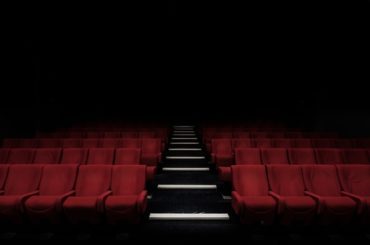The battle at the centre of Noah Baumbach’s ambitious and sincere but clumsy and awkward adaptation of Don DeLillo’s now-classic 1985 novel White Noise—which aired Friday on Netflix—is between DeLillo and film. No other great living American novelist has, perhaps but not really, such a distinctive stylistic voice in dialogue and character— call it the High Meta Ironic Alienation In-Joke Idiom. DeLillo’s characters are always too intelligent for their own good, and they engage in metaphor-heavy rants around craters of pain and emptiness. They have a kind of shared dialect of referential banter, and now all that’s left to do is to hypercharge what they say, spice it up with strained insights, reach for symbolic gestures, and glibly punch for the obscure rather than give in to the commonplace.
Despite DeLillo’s passionate commitment to tackling whatever Zeitgeist is hitting us at the time, it isn’t realistic, and filming it presents a Difficulty Score of Through the Roof. It’s easy to understand the urge given that DeLillo is one of the last remaining red-hot visionary modernists, a groundbreaking author for whom the constantly changing modern world is an unfathomable empire of metamorphosing absurdity and for whom the diamond-cut mysteries of exquisitely crafted sentences are a way to understand the madness. It’s like waking up on a cross-country bus ride and seeing the American madscape for the first time when reading White Noise, DeLillo’s funniest and most endearing book (albeit funny and endearing are otherwise uncommon dishes on the DD menu).
With 2011’s Cosmopolis, only David Cronenberg, the maestro of adapting the impossible, tried a DeLillo film. He largely succeeded by leaning into DeLillo’s arrogance and letting the dead-on dialogue freeze in the air. At one point, when assuming the role of the Chief of Theory for an asset management firm, Samantha Morton remarks, “All industries ought to be ruthlessly abolished. “New markets must be seized by force, and older ones must be re-exploited. Remake the future; destroy the past. Being unfilmable is, of course, nothing to be ashamed of for a novelist; it’s the filmmaker’s bet to win. Baumbach faced a challenging task. For starters, White Noise is strangely organised, neatly divided into three sections, the second of which famously features the suburban onslaught of the “Airborne Toxic Event,” a man-made disaster that upends the story’s idyllic suburb and serves primarily as an extended metaphor for deeper lurking issues, such as marital trust and the fragility of privilege and security.
Baumbach faithfully maintains the novel’s roaming sense of itself, despite the odd movie that results. Jack Gladney (Adam Driver) is introduced as the primary scholar working on Hitler Studies. He is a somewhat pompous academic who basks complacently in his Midwestern college life and large, active family (composed of his newest wife, played by Greta Gerwig, and five children from multiple marriages). Their life is otherwise a happy masquerade of university rituals, grocery runs, and family meals timed to the children’s precocious arguments about calamity, death, and the news. He and his wife, Babette, both fear death and secretly fear surviving each other.
Then comes the Toxic Event, a train disaster that releases a poisonous cloud and compels the Gladneys and the community to flee in the dark and rain. The event itself is a scarcely perceptible off-screen entity in the book; yet, it dominates the movie thanks to elaborate CGI. Gladney’s determined calm-dad savoir-faire is hampered and put to the test during this protracted sequence of middle-class chaos, including possible poison air, emergency shelters, panic, and Covid-y masking. Most importantly, though, are the hints he is receiving that Babette is secretly taking a mysterious medication. The sudden change in Gladney’s perception of his wife’s true self once the emergency is resolved and the event’s subsequent disappearance from the story may cause some confusion for readers who are unfamiliar with the book.
Baumbach treats the rhythmic tides of satirically lofty dialogue between Gladney family members and Gladney and his equally pretentious academic colleagues (including Don Cheadle as an Elvis expert looking for departmental traction) as if it were slapstick farce, overlapping the frequently freestanding pronouncements in a comedic spray that is neither funny nor thematic, causing the film to flounder. DeLillo’s characters speak in this manner; actors never do. The only instance where DeLillo’s language has dramatic resonance is in the late-game confrontation between Gladney and Babette because it is a straightforward, passionate conflict. Driver and Gerwig grapple with DeLillo’s most peculiar phrases (“Let the seasons drift. They do this when expressing crippling thanatophobia, which was felt between the lines in the novel (“Do not forward the plot as planned.
In the end, DeLillo’s satire, which is so potent and resonant on paper, feels forced and even dated on screen, at least in part because it is: What was newly bizarre in 1985 is old news to us today, and the movie gives off an oddly nostalgic vibe for the times when TV ads seemed to be commenting on our lives constantly, and the Ballardesque spectacle of televised car crashes was a new and unsettling presence in our lives. Even the name is a holdover from TV in the 20th century, and there is no modern equivalent.
The eye-catching profusion of supermarkets? The welcoming atmosphere of academic life in the Midwest, where entire departments are devoted to stupid conjectural deconstructionist theories about pop culture? Like a movie from the era, a book from or about the ’80s, or, more precisely, the post-’70s, may be regarded as being rooted in the cultural shitstorm of the time. But making a movie out of those obsessions 37 years later adds an unavoidable degree of quaintness and irrelevance. If only we had to worry about marriage secrets, hazardous leaks, and public television these days.
However, suppose there isn’t a source novel and Baumbach’s movie asserts that it has its own thematic farmstead. Then what is it? A mild parable, at most, that is rife with ambivalence about the Reagan Era’s failure and a fear of masculine impugnation. It undoubtedly possesses what many other Baumbach films have lacked, including a rich cascade of material, haphazardly resonant cultural nuances, and a sense of portraying a notion about America. No matter how you interpret it, don’t let it stop you from visiting DeLillo at his fictional home in the book.

